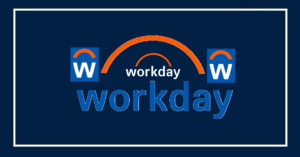Workday Reports Strong Fiscal 2025 Results with 16% Revenue Growth and Expanding AI Innovations
Workday reported strong Fiscal 2025 results, with total revenue growing 16.4% to $8.446 billion and subscription revenue increasing 16.9% to $7.718 billion. Q4 revenue reached $2.211 billion, up 15% year-over-year. Non-GAAP operating income for the full year rose to $2.19 billion (25.9% margin). Free cash flow grew to $2.19 billion, and the subscription backlog hit $25.06 billion.
Workday expanded AI capabilities with the Agent System of Record and new Illuminate AI agents. The company appointed Gerrit Kazmaier as President of Product & Technology. Fiscal 2026 subscription revenue is projected at $8.8 billion, with a 28% non-GAAP operating margin.

Workday Reports Strong Fiscal 2025 Results with 16% Revenue Growth and Expanding AI Innovations
Workday reported strong financial results for the fourth quarter and full fiscal year 2025, highlighting consistent revenue growth and expanding its customer base. In Q4 2025, total revenue increased by 15% year-over-year to $2.211 billion, with subscription revenue rising 15.9% to $2.040 billion. Despite restructuring costs of $75 million, operating income stood at $75 million, slightly lower than the previous year’s $79 million.
However, non-GAAP operating income showed a significant increase, reaching $584 million, up from $462 million in Q4 2024. The company’s diluted net income per share for the quarter was $0.35, significantly lower than last year’s $4.42 due to a one-time $1.1 billion tax valuation allowance release in fiscal 2024. On a non-GAAP basis, diluted net income per share rose to $1.92 from $1.57.
For the full fiscal year 2025, Workday’s total revenue grew by 16.4% to $8.446 billion, with subscription revenue reaching $7.718 billion, a 16.9% increase. Operating income for the year improved to $415 million, up from $183 million, despite incurring restructuring costs of $84 million. Non-GAAP operating income increased to $2.186 billion, representing 25.9% of revenue, compared to $1.741 billion (24.0%) in the prior year.
The company’s diluted earnings per share for fiscal 2025 were $1.95, a decrease from $5.21 in 2024 due to prior-year tax benefits, while non-GAAP diluted EPS rose to $7.30 from $5.90. Additionally, Workday’s subscription revenue backlog grew to $25.06 billion, up 19.7%, with a 12-month backlog of $7.63 billion, reflecting a 15.2% increase. The company also reported an operating cash flow of $2.461 billion, marking a 14.5% year-over-year rise, while free cash flow climbed to $2.192 billion from $1.917 billion.
Workday continued its innovation efforts, introducing the Agent System of Record to enhance AI-driven workforce and finance management. It also launched new Illuminate AI agents tailored for Payroll, Contracts, Financial Auditing, and Policy. Additionally, the company expanded its customer base to over 11,000 organizations, including 30% of Forbes Global 2000 companies, securing new contracts with First-Citizens Bank & Trust, St. Louis County, UnityPoint Health, and Vermont State College System. Workday also announced an expansion of Workday Student into Australia and New Zealand, its first launch outside North America. In recognition of its continued excellence, Workday received the Best in KLAS 2025 award for ERP in large organizations for the eighth consecutive year.
Looking ahead, Workday provided a positive outlook for fiscal 2026, projecting Q1 subscription revenue of $2.050 billion, reflecting 13% growth, with a non-GAAP operating margin of 28.0%. For the full fiscal year, the company anticipates subscription revenue of $8.800 billion, a 14% increase, maintaining a non-GAAP operating margin of 28.0%.
CEO Carl Eschenbach emphasized Workday’s role in helping businesses enhance productivity, streamline operations, and leverage AI-driven HR and finance solutions. CFO Zane Rowe highlighted the growth of AI-driven products and industry-specific solutions, reinforcing the company’s long-term strategic direction.
Workday acknowledges potential risks associated with its business, including security vulnerabilities, evolving regulations, economic uncertainty, competition, and changes in IT spending. Additionally, the company’s reliance on partnerships, regulatory compliance challenges, and technological advancements, particularly in AI, pose potential risks. To address these concerns, Workday remains committed to strategic investments and operational efficiencies.
The company continues to emphasize non-GAAP financial measures to provide a clearer picture of its performance, adjusting for share-based compensation, acquisition-related costs, restructuring expenses, and tax impacts. While non-GAAP metrics offer valuable insights, they should be considered alongside GAAP results for a comprehensive financial analysis.
Check out TimesWordle.com for all the latest news
You must be logged in to post a comment.